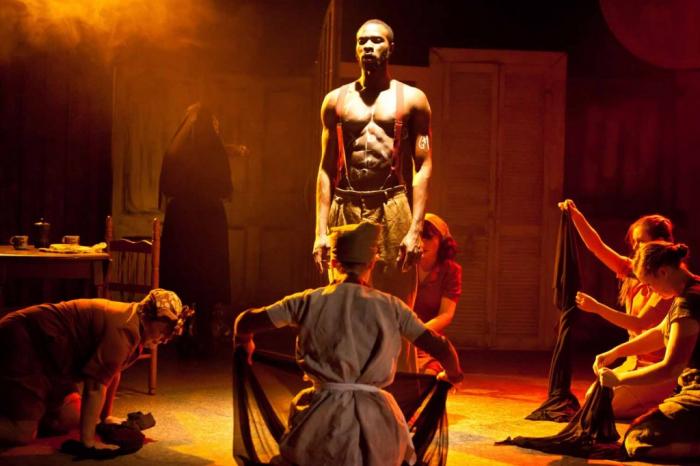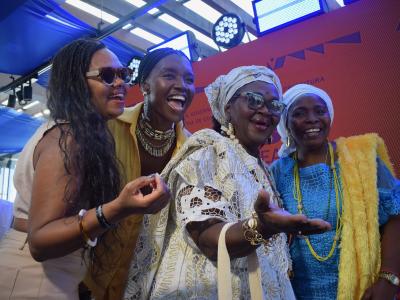Blood Wedding is the first play of the great Spanish poet and playwright Gabriel Garcia Lorca (1898-1936). Lorca wrote the Blood Wedding in 1932, just four years before he was tragically murdered by fascists during the Spanish Civil War. Yet, it is not politics or ideology that animate the emotional makeup and chemistry of the play, but the condition of love at its highest levels of intensity. Simple as the plot is, it is enriched with vivid language that is mindful of its function and place. Such discipline within language coupled with euphoric stretches of expression establishes a parallel structure to the language, one lodged in visual silence that ends in death.
At the outset, the mother senses that her son, the bridegroom, is wilfully sleepwalking into a tragedy, even though she walks all the way with him towards it. He persists on marrying his bride, who has been emotionally connected before to another man, Leonardo from the troublesome Felix family.
The mother is aware that her family background is at loggerheads with the bride’s. Innocently unmindful of the signs, the bridegroom attempts to please his bride, while Leonardo, though married and with a baby, has gripped the bride's heart and imposes himself on her the night before the wedding.
The wedding takes place. But as the night progresses, or rather digresses, the bride flees to the forest with Leonardo. Upon knowing this, the bridegroom, egged on and aided by the brilliantly created figures of death and moon (signs of irreversible fate, fabulously represented on the stage), follow them and lays siege around the forest. There, in duel with a little knife in the hand of each suitor, the two men, the bridegroom and Leonardo, kill each other. The bride survives, but what survival, particularly for the mother of the bridegroom who exudes utter heartbrokenness. Drama-wise, it is riveting.
A play like this demands sublime performances, and to say the performances were good is not enough — they were beautiful, affecting and credible. Much of the symbolism, oblique tinges and bursts of passion and emotions, as registered in the original play, are brought to life in an absorbing fashion. Evocative choreography, costumes, lights, music and dances enliven the space and ready it for the tragedy to unfold.
One does not expect reality to reflect a tragic drama like this, where events are driven towards a night of absolute terror — emotional as well as physical. Yet beyond moralisation, Lorca succeeds in this play to pin down the abiding imperatives of instincts, buttressed by the history of the psyche, as enthralled to a past that has never been adequately (therapeutically) transcended, or more like it, allayed.
If it confirms anything, the play plays to Sigmund Freud’s arresting, even if somehow troubling, observation, ‘the instincts are conservative.’ With the death of the two men, the grieving mother, in particular, articulates the narrowness as well as the inevitability of it all:
The bride: And this is a knife
A little knife…
The mother: It scarcely fits in the hand,
But penetrates so coldly
Through the astonished flesh,
And stops there — at the place
Where, trembling and entangled,
Lies the dark root of the scream.
Blood Wedding continues at The Courtyard Theatre until November 16th. For tickets go to: http://www.thecourtyard.org.uk/whatson/343/blood-wedding
Image















